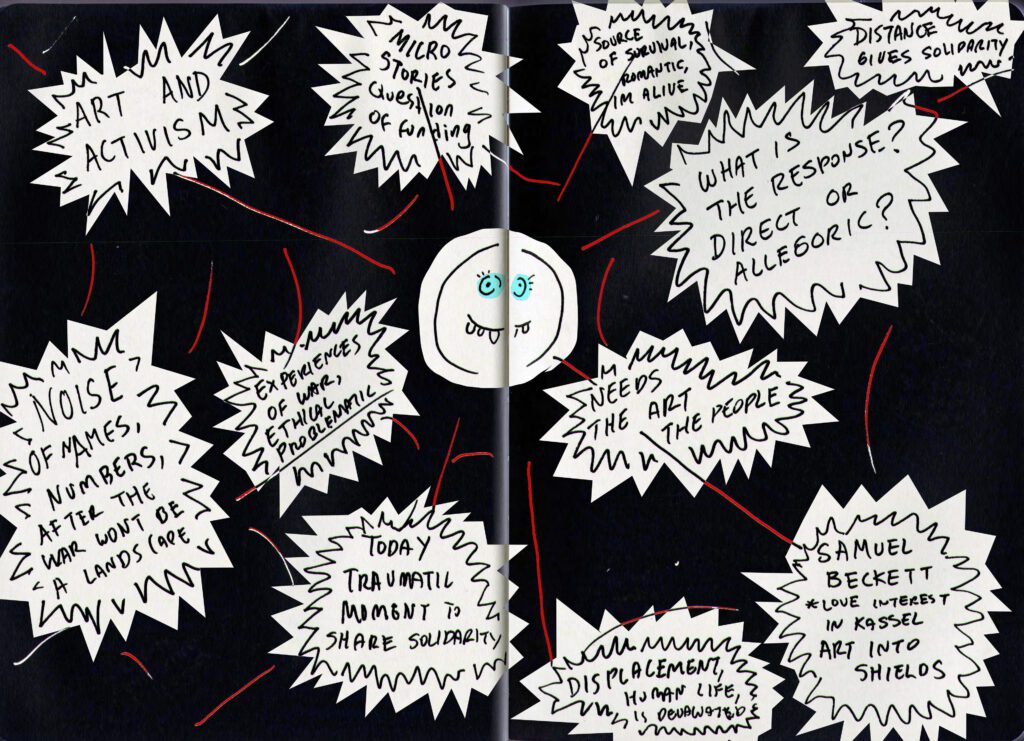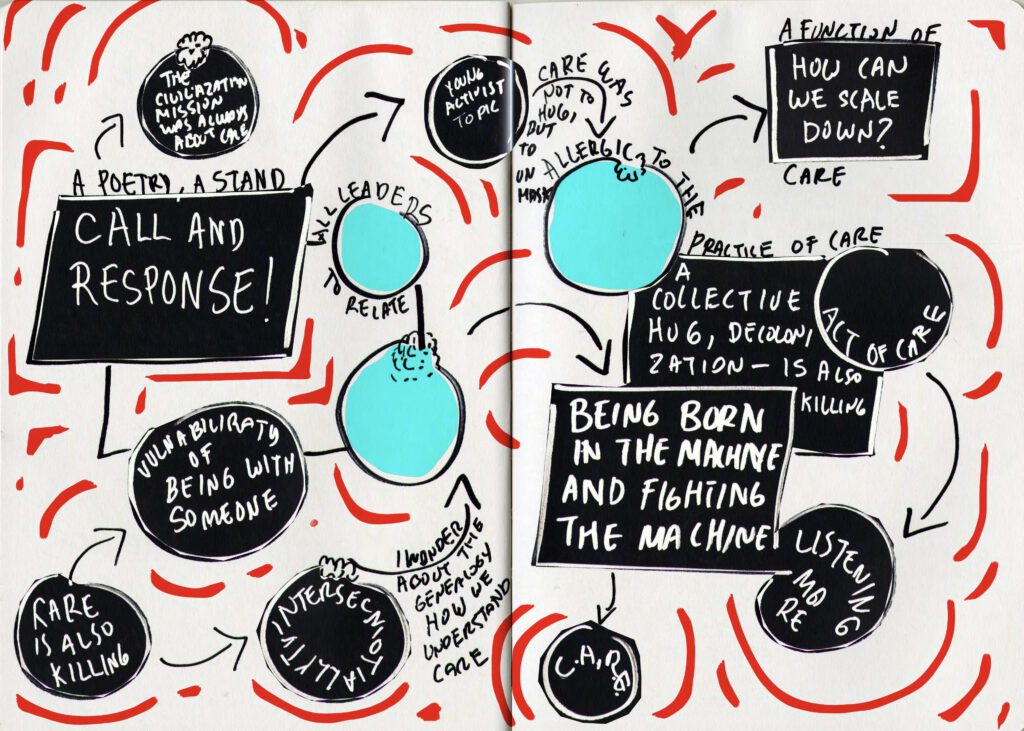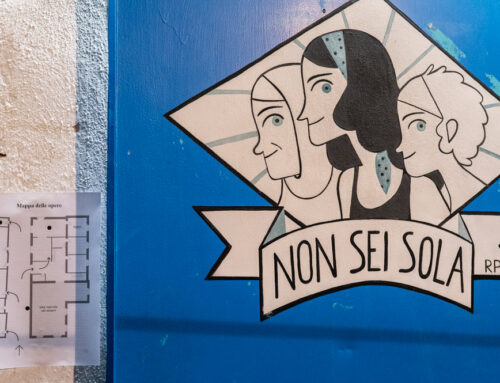Art Activism
Christa-Maria Lerm-Hayes, Annie Jael Kwan and Wet Hole Group (Nikita Kadan, Bogdana Kosmina, Alina Kleytman).
Harvest by Daniel Aguilar and Diana Cantarey.
Hosted by Aria Spinelli
For the panel discussion on Art Activism, Christa-Maria Lerm-Hayes, the Wet Hole Group, and Annie Jael-Kwan shared stories around political art projects in the history of Documenta and beyond. The Wet Hole Group shared a selection of their video works. Together the speakers focused on methodological approaches to practice and discussed the role of art in different contexts of conflict, ranging from the war in Ukraine to racist attacks against Asian communities in the U.K.
The statement co-written that very day by the artists of documenta fifteen against accusations of antisemitism was shared at the beginning of the panel. Lerm-Hayes connected it with a range of methods for politically engaged art practices, which have been activated in the context of Documenta and radicalised it. She presented the case of the Office for Direct Democracy by Referendum (1972) by Joseph Beuys, whereby the artist set up a political campaign, inviting the audience to advocate for direct democracy in the context of the exhibition. The function of art in war zones was explored by visual means through a presentation of videos by different members of the Wet Hole Group, which had been previously shown in the Dzherelo art space in Kyiv. The group emphasised the importance of transnational networks of solidarity and platform such as Documenta in sustaining the life and circulation of art and artists’ communities dispersed by war.
In one of the video works, Alina Kleytman performed Princess Olga, the first Christian ruler of Kyiv and all Rus, who is remembered for her brutal but successful war campaigns. Olga is a modern nationalist hero in Ukraine because of her fighting spirit. In her video performances, the artist emphasises and exaggerates the bloodthirsty features of the queen, in relation to multiple realities and discourses, from the ongoing Russian aggression to stereotypes of Slavic ferociousness.
Jael-Kwan addressed the activist potential of art healing even within confined spaces. Through a selection of projects she curated, Jael-Kwan explored how artistic practice can create communities. She revisited projects like the ‘Asian Art Activism‘ platform that has been bringing together Asian communities in diaspora through educational and collective projects. The affect of these gatherings created a transnational solidarity network that turned very valuable during the COVID-19 pandemic and the ensuing attacks against people of Asian origins in Europe and beyond. Through online meetings, the participants co-constituted communities of care and support for victims of racial violence. Together the speakers addressed how art activism can both produce and question communities and their values, making space for engagement and radicality.


